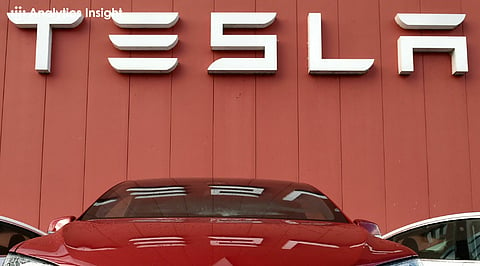

Why Tesla Faces Roadblocks in India? Tesla's ambition to enter the Indian automotive market faces a complex array of challenges, despite recent advancements. The company's efforts to establish a presence in India have been met with regulatory, economic, and political obstacles that continue to impede its progress.
India imposes substantial import duties on fully assembled electric vehicles (EVs), with tariffs reaching up to 100%. These high taxes significantly inflate the retail prices of imported vehicles, making them less competitive in the cost-sensitive Indian market. Tesla has lobbied for reduced import duties to test the market before committing to local manufacturing, but the Indian government has been reluctant to offer concessions without assurances of domestic production. This stalemate has been a primary deterrent to Tesla's market entry.
The political landscape further complicates Tesla's plans. U.S. President Donald Trump has expressed concerns over Tesla establishing manufacturing operations in India, suggesting it would be "unfair" to the United States. This stance introduces additional uncertainty, as Tesla must navigate the diplomatic intricacies between the two nations. Balancing the desire to expand globally with potential political ramifications requires careful consideration.
The Indian automotive market is predominantly driven by affordability, with the average car priced around ₹1.2 million (approximately $14,500). In contrast, Tesla's vehicles, even the more affordable models, would likely retail at significantly higher prices due to import duties and production costs. This disparity raises questions about the potential demand for Tesla's premium EVs in a market where consumers are highly price-sensitive. Additionally, the nascent state of EV infrastructure, particularly the limited availability of charging stations, poses practical challenges for potential Tesla owners.
Indian automakers such as Tata Motors and Mahindra & Mahindra have established a foothold in the domestic EV market by offering models tailored to local preferences and price points. These companies have expressed concerns that reducing import duties for Tesla could undermine the investments they have made in developing affordable EVs for the Indian consumer. The potential entry of Tesla has prompted discussions about fair competition and the need to protect emerging domestic industries.
Establishing local manufacturing would require Tesla to invest heavily in infrastructure and develop a robust supply chain within India. The company has reportedly scouted locations in states like Andhra Pradesh for potential factory sites. However, setting up production facilities involves navigating complex regulatory environments, acquiring land, and ensuring a steady supply of components, all of which present significant challenges. Moreover, India's existing infrastructure may require substantial upgrades to meet Tesla's operational standards.
While Tesla's innovative technology and brand appeal could potentially stimulate interest in EVs, the company must address the multifaceted challenges of high import duties, political considerations, market dynamics, local competition, and infrastructure development. A strategic approach that includes collaboration with local entities, gradual investment in manufacturing, and active engagement with policymakers may be necessary for Tesla to establish a sustainable presence in India. The outcome of ongoing negotiations and policy developments will be critical in determining Tesla's trajectory in this burgeoning market.
